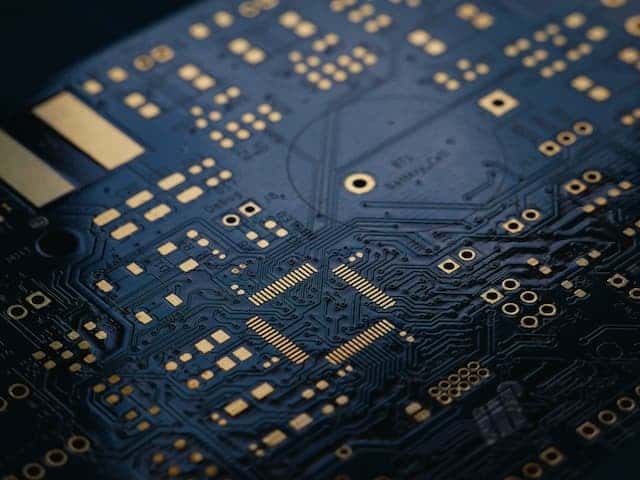In a recent turn of events, China has issued a ban on the US memory chip company Micron, preventing them from selling their products to domestic Chinese companies. This move comes in response to the ongoing US trade sanctions affecting China’s tech sector.
Overview: China’s Ban on Micron

The Chinese government has recently taken the bold step of banning major US memory chipmaker Micron from selling chips to domestic companies (h/t: Reuters). The ban was enacted following a failed security review by the Cyberspace Administration of China (CAC). In a statement issued on Sunday, the CAC explained their decision:
The review found that Micron’s products have relatively serious potential network security issues, which pose a major security risk to China’s key information infrastructure supply chain and affect China’s national security.
Operators of critical information infrastructure in China have been instructed by the CAC to stop buying Micron products, citing the ‘Network Security Law’ and other regulations. The regulator has not disclosed any details regarding the claimed network security issues.
The US Response
In response to the ban, a US Commerce Department spokesperson was quoted by Reuters as saying, “We firmly oppose restrictions that have no basis in fact.” This statement comes after the US imposed wide-ranging bans on tech sales to various Chinese industries. These bans included restrictions on advanced chipmaking equipment, high-performance chips used for AI, and more. The US also sanctioned HUAWEI in 2019 over unspecified security issues.
Background on the ongoing US-China trade war
The US-China trade war is an ongoing economic conflict between the United States and China. The conflict began in 2018, when the Trump administration imposed tariffs on Chinese goods. China responded with tariffs of its own, and the two countries have been engaged in a tit-for-tat trade war ever since. The trade war has had a significant impact on both economies, and it is unclear when it will end.
The trade war began when the Trump administration accused China of unfair trade practices, such as intellectual property theft and forced technology transfers. The administration imposed tariffs on $34 billion worth of Chinese goods in July 2018, and China responded with tariffs of its own on $34 billion worth of American goods. The two countries have since imposed tariffs on billions of dollars worth of each other’s goods.
Gizchina News of the week
Micron’s Role in the Tech Industry
Micron plays a crucial role in the production of memory and storage products used in a variety of consumer electronics, such as PCs, smartphones, and other gadgets. Their product range includes RAM, DRAM, and UFS storage. While there are alternative suppliers like Samsung Semiconductor and SK Hynix, the ban on Micron raises questions about how this could affect Chinese consumer technology brands.
Potential Impact on Chinese Tech Brands
The ban on Micron could lead to supply shortages and increased costs for Chinese tech brands. This is because they will need to rely on alternative suppliers for memory chips. This may result in production delays and postponed product launches. Companies will need to scramble to secure new supply chains and adapt to the changing market landscape.
The Wider Implications of the Tech Trade War

The ban on Micron is just the latest in a series of escalating tensions between the US and China. As both countries impose restrictions and sanctions on each other’s tech industries, further escalation and retaliatory measures are possible. This ongoing tech trade war raises concerns about the impact on global tech supply chains and innovation in the sector.
The Future of US-Chinese Tech Relations
The current situation appears bleak. However, there is always the possibility of negotiations and agreements between the two countries. However, the ongoing tech trade war could also have a significant impact on other tech companies and industries, potentially leading to further disputes and sanctions. It is crucial for both nations to find a way to cooperate in addressing global tech challenges and fostering innovation.
Lessons for Tech Companies
The ban on Micron serves as a reminder for tech companies. It highlights the importance of diversifying supply chains and reducing dependence on specific countries or suppliers. In addition, the focus on network security issues highlights the need for robust cybersecurity measures and practices within the industry. Finally, the ongoing tech trade war underscores the potential benefits of collaboration and cooperation between global tech companies.
Impact on Consumers
The ban on Micron could also have a direct impact on consumers. This might lead to potential increases in prices for consumer electronics as companies face increased costs. Additionally, consumers may experience delays in the release of new products due to disruptions in supply chains. There could also be concerns over the quality and security of tech products, as companies navigate the challenges presented by the ongoing tech trade war.
In Conclusion
China’s ban on Micron, a US memory chip company, is a major development in the ongoing tech trade war between the two countries. This ban can have far-reaching consequences for Chinese, American, and global tech companies, affecting supply chains and innovation. It’s important for both nations to cooperate and find solutions to the challenges facing the global tech industry.





